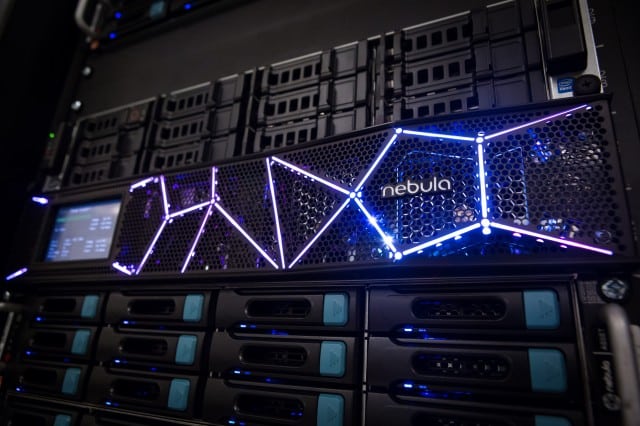Professionals who deal with IT infrastructure might have remembered NASA’s Nebula project. The Nebula cloud platform later merged with Rackspace’s Cloud Files platform to create OpenStack. However, some of the people behind the Nebula project have decided to commercialize their expertise and build a company named Nebula in 2011. The company has finally announced the general availability of its first product, Nebula One.
Nebula (the company) is headed by Chris Kemp, NASA’s ex-CTO of IT. Another NASA veteran named Devin Kerlen, is heading the post of CTO at Nebula.
Nebula One uses OpenStack software in conjunction with the company’s proprietary “Cosmos” software. The platform lets users grab all the server and storage resources they need like Amazon Web Services, but allows customers to run the hardware in-house.
“Nebula One allows you to start with the compute and storage you need today, and scale seamlessly across multiple racks tomorrow. This is achieved through a simple, expandable architecture that presents itself as a single system on your network. The Nebula Cosmos cloud operating system offers a rich, intuitive graphical interface for users at any level. For developers, Nebula Cosmos implements APIs from OpenStack and Amazon Web Services so they can leverage their knowledge of public cloud services,” the company explains.
“The core hardware is the Nebula Cloud Controller, a 2U-sized appliance with a 16-core processor and 64GB of RAM.” Each controller can administer up to 20 servers, each cluster can have five controllers.
Each controller can be bought for $100,000. Customers can buy their own servers from a list of certified devices.
The company has already secured at least one big customer – Xerox. If it would be successful in securing more, depends on a lot of other things.
Thanks to: Arstechnica
[ttjad keyword=”cloud-storage-drive”]



